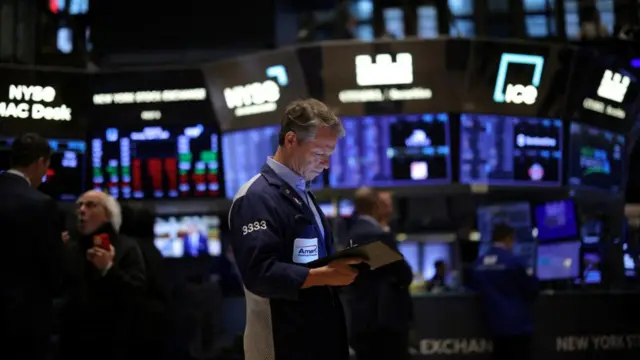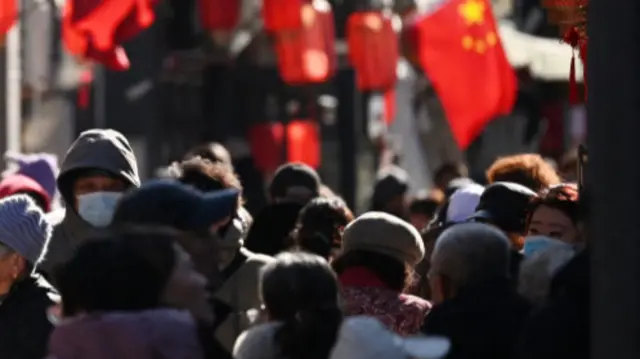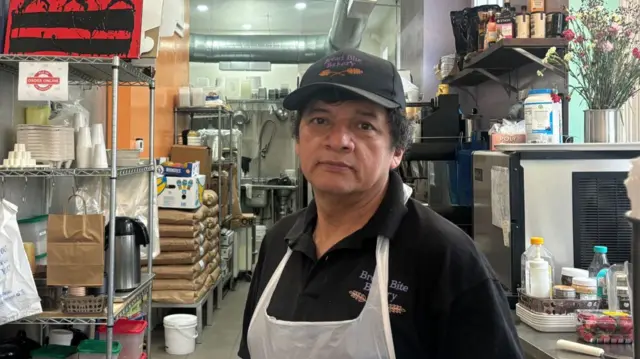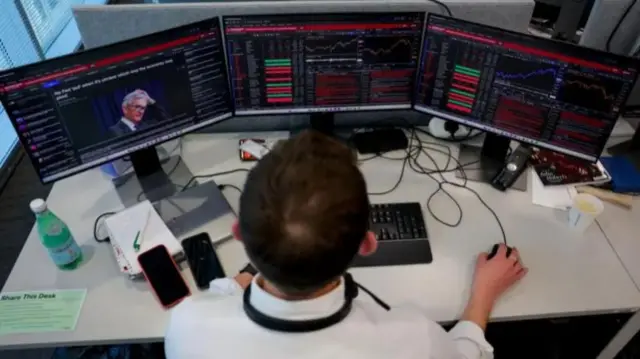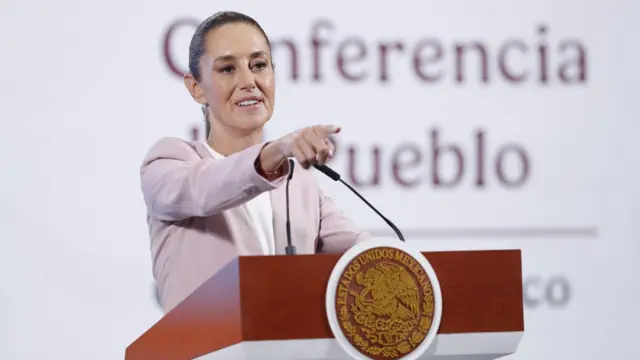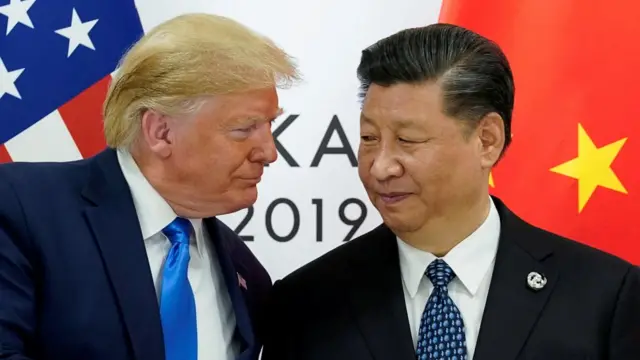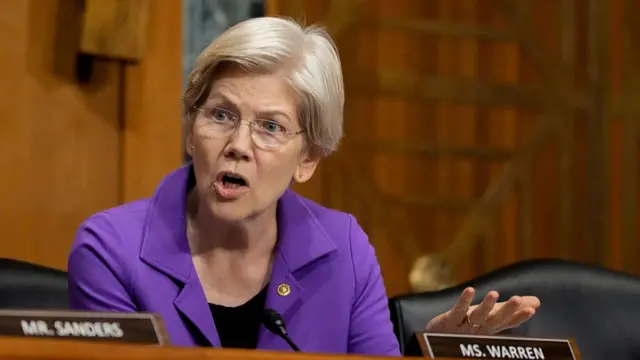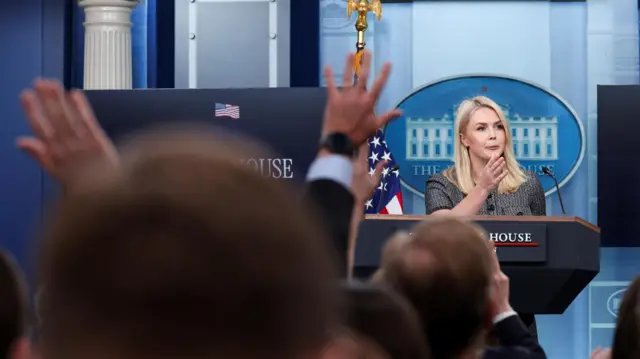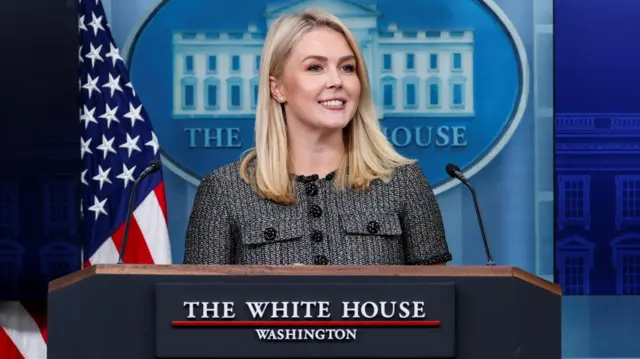Wall street closes up, as Trump says tariff policy doing 'really well'published at 22:15 BST 11 April
 Matt Spivey
Matt Spivey
Live editor
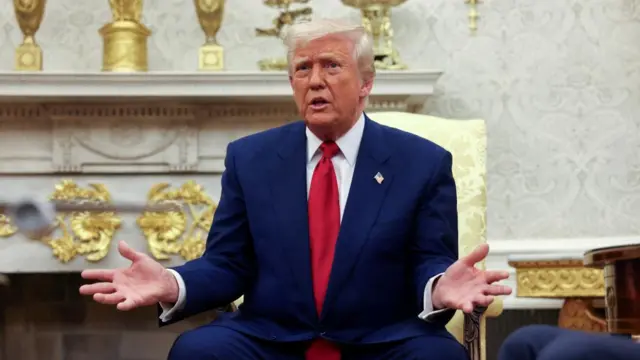 Image source, Reuters
Image source, ReutersAfter a turbulent week for the global stock markets, Wall Street saw some gains at the close on Friday but the UK's FTSE ended down 1.1%.
With the stocks closed for the weekend it will be a waiting game to see how Trump's 90-day pause on higher tariffs will impact the markets going forward.
China hiked tariffs on US goods to 125%, after the US hit them with a 145% tariff on some goods entering the US.
The value of the US dollar has fallen in recent days to a new three-year low following the uncertainty over the impact of Trump tariffs on the global economy - the BBC's New York business reporter Natalie Sherman explains why.
Trump turned to social media earlier to say that the US is "doing really well on our tariff policy".
Meanwhile, the US says it is preparing for negotiations with countries over tariffs in the coming weeks, as the BBC has been hearing from those affected by the US-China trade war.
We're now ending our live coverage, thanks for joining us.

